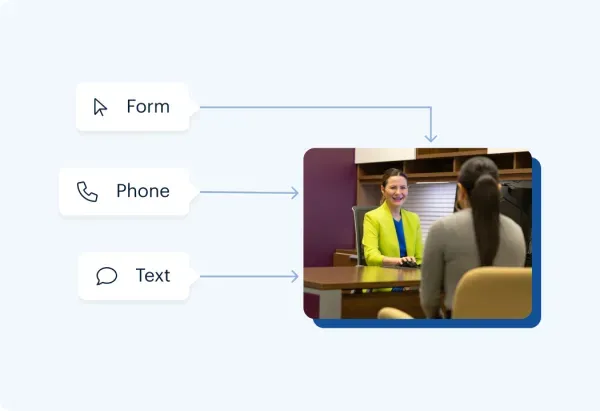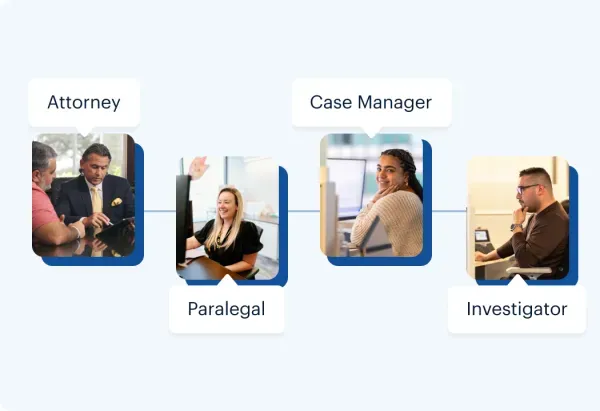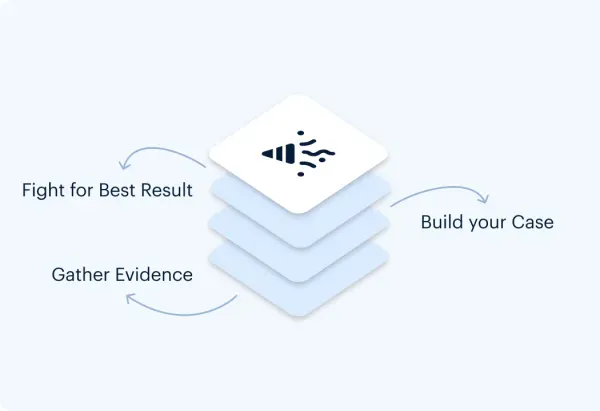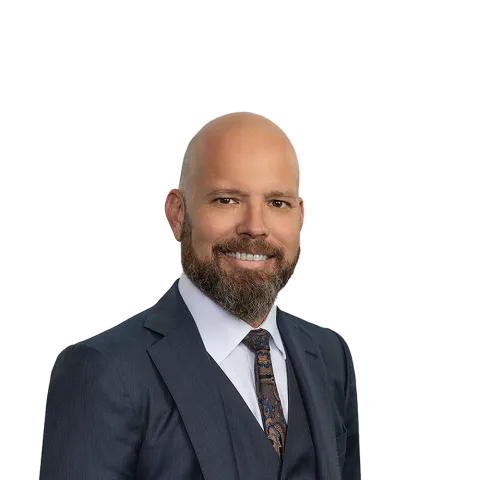Results may vary depending on your particular facts and legal circumstances. The attorney featured above is licensed in Florida. For a full list of attorneys in your state please visit our attorney page.
PALM HARBOR OVERTIME ATTORNEY
If your employer denied you overtime pay, we fight to recover your lost wages and ensure fair compensation for your work.
Results may vary depending on your particular facts and legal circumstances. The attorney featured above is licensed in Florida. For a full list of attorneys in your state please visit our attorney page.
Overtime Attorneys
Palm Harbor is ranked as one of Florida's most-favored places to live. It's family-friendly and not as densely populated as other areas in Florida; plus, it's a great place to work with below-average unemployment rates. Some of the area's largest employers are, unsurprisingly, Walmart, Target, UPS, The Home Depot, Morgan Stanley, Starbucks, and McDonald's. But there are also homegrown employers like If Music, Golf Host Resorts, Salamander Innisbrook, and FreightCenter.
The cost of living in Palm Harbor is also 5% lower than the national average. Housing is 12.3% lower, making it an ideal place to pursue a career. Locals don't have to worry about an influx of residents that would destroy the suburban feel of the area because of strict constraints and housing standards.
While Palm Harbor is a fine place to live and be employed, some employers make the mistake of not paying overtime to their employees when they are entitled to it. Denial of valid overtime pay is known as wage theft, and unfortunately, it's not uncommon. You worked overtime, we believe you deserve to be compensated for it, and the law is on your side. If you believe you're due overtime pay and are being denied or harassed about asking for it, Morgan and Morgan's overtime attorneys in Palm Harbor can help.
The Law and Morgan & Morgan Overtime Attorneys Have Your Back
The Fair Labor Standards Act (FLSA) is a law that was enacted to protect workers against unjust pay practices that were rampant in the early 20th century. The FLSA regulates the requirements for overtime pay and minimum wages and puts limitations on child labor. Although sadly, some employers still try to get away with unethical practices. When this happens, our workplace attorneys can step in to recover your stolen wages.
Over the years, the FLSA has seen many changes, including protections against wage disparity due to gender and age discrimination. FLSA rules dictate when workers are "on the clock" and when they should be paid for overtime work. The FLSA also lays down rules that specify whether an employee is exempt or nonexempt, which is often a point of contention for when an employee is eligible for overtime pay.
The rules governing exempt or nonexempt status are undoubtedly complex. Many employers (and even employees) think that if the job is salaried, that automatically means the worker isn't eligible for overtime pay or FLSA protections. However, that's not the case.
150,000+ Five Star Reviews
The reasons why clients trust Morgan & Morgan.
Results may vary depending on your particular facts and legal circumstances. Based on select nationwide reviews.
Our Results
How It Works
Unsure what to do next? With 35 years of experience, our personal
injury lawyers will guide you every step of the way.

Contact Us 24/7 - It’s Free
Start your claim

Meet your dedicated attorney
Meet the attorneys

We fight for more
Learn more about the case process
Results may vary depending on your particular facts and legal circumstances. The attorneys shown in these photos may not be licensed in your state. To find an attorney licensed in your area, please visit our attorney page.
Local Care
Backed by America’s Largest Injury Law Firm.
$30 Billion
Recovered for clients
nationwide700,000+
Clients and families
served1,000+
Attorneys across
the country1
Click may change your life
The attorney featured above is licensed in Florida. For a full list of attorneys in your state please visit our attorney page.
Results may vary depending on your particular facts and legal circumstances.
Learn More
Injured and not sure what to do next?
We'll guide you through everything you need to know.
What Is an Exempt Employee in Florida?
Exempt employees are not eligible for overtime pay or minimum wage requirements. They usually are salaried employees instead of being paid hourly. However, employers must pay these workers a minimum of $684 on a salaried basis or $27.63 per hour to qualify for the exempt status. This pay threshold is subject to change. Employers are allowed to use bonuses and incentive payments to satisfy up to 10 percent of the standard salary level to meet the minimum payment requirement. Most exempt positions are dubbed "white collar," but the employee's job title doesn't dictate whether they are exempt or not.
Employers may use white-collar job titles like supervisor or manager to get out of paying you for your hard work. However, under FLSA requirements, typically, to be ineligible for overtime, managers must:
- Manage a department or other business operation
- Have at least two full-time employees under their management
- Have the authority to hire and fire employees
- Make important business decisions autonomously
Furthermore, to be exempt, you have to perform the above job duties more than 50 percent of the time. That means if you spend more than 50 percent of your time doing the same work as your subordinates, you will qualify to receive overtime pay.
What Is a Nonexempt Employee in Florida?
Nonexempt employees are typically "blue-collar" workers such as factory workers, carpenters, cashiers, firefighters, police, paramedics, and electricians. They do manual labor, and if they work more than 10 hours during a workday, they are eligible for overtime pay for the extra hours on that day regardless if they work under 40 hours in the workweek.
As of September 30th, 2021, the minimum wage in Florida is $10. If you work overtime, the pay you should receive for hours you work over 40 in the workweek would be $15, also known as time-and-a-half.
Unfortunately, if you work as an independent contractor, the FLSA rules don't apply since you're paid based upon the completion of your work. There are exceptions, though. To be classified as an independent contractor, you must be:
- Free to perform your job as you see fit
- Paid for each task or completed project
- Doing the job temporarily
- Using your own tools, equipment, or materials to complete the job
Suppose the employer who signed a contract with you requires you to use their materials or dictates how the job should be completed. In that case, you may actually be an employee for all intents and purposes and have a right to FLSA protection.
What Other Tactics Do Employers Use to Get Away From Paying Overtime?
Because the FLSA is a complicated and ever-evolving set of rules, an employer may be tempted to bend the rules to get away with not paying you for the hard work you perform, such as:
Not paying for "off the clock" work - You deserve to be paid for your time, even if it's as simple as replying to a work email while you're at home. All this time adds up. Some employers may ask you to do things like power up your computer and open up computer programs to be ready to work at an exact time. However, if you're not being paid for that prep time, that's wage theft. Furthermore, you're protected by the FLSA even if the overtime work you performed wasn't authorized.
Not paying for working during breaks - Working through breaks and lunchtime without being compensated is also wage theft. If you have to reply to texts or answer work-related phone calls while you're supposedly on a break, you should be paid for it.
Not paying for being on call - If you're on call and are unable to use your time for your own purposes, the on-call time should be paid.
Agreements for not paying overtime - An employer cannot waive your rights to overtime with a contract or verbal agreement even if you consented to it. No such agreement is valid under the FLSA.
Averaging work weeks - Suppose you worked 50 hours one week and the following week you worked just 30. Some employers might be tempted to add the ten hours of overtime to the short week to get out of paying you for overtime. This is illegal. You have a right to get paid 10 hours of overtime for the 50-hour week.
How Can Morgan & Morgan's Overtime Attorneys Help Me?
As a worker in Palm Harbor, Florida, you deserve to be paid accurately for your hard work, even if your employer fired you or you resigned from your position. Our overtime attorneys are passionate about standing up for workers' rights. We can help you understand these rights and pursue compensation based on Florida's state and federal laws. When you contact us for a free case evaluation, we'll look to see if your claims include violations of the FLSA. We'll help you file a Wage Claim with the Department of Labor's Wage and Hour Division if it does. You can also file a civil lawsuit against your employer.
We recommend that you try to contact your employer via email or certified letter and ask for an explanation for not paying you overtime. If their explanation doesn't make sense, it could be time to file a lawsuit. If your employer acted in bad faith, meaning they were intentionally using illegal tactics, or cannot offer a reasonable explanation as to why they aren't paying for what you earned, the courts might award you triple damages.
Our lawyers will initially work to negotiate a settlement with your employer to get you paid the wages you're owed. Most civil claims are settled out of court. However, if negotiations fail, we'll take your claim to court and let a judge and jury decide.
What Is Florida's Statute of Limitations on Filing a Claim Against My Employer?
The FLSA allows employees three years to file a claim for unpaid overtime against an employer. Florida laws can extend that time under certain circumstances. That's why it is crucial to contact our overtime attorneys as quickly as possible. Once the statute of limitations has expired, you have no legal recourse to recover the money you're owed.
What Are Some Examples of Unpaid Overtime Lawsuits?
Most lawsuits filed by individuals for unpaid overtime don't make the news. However, when an employer wrongs many individuals, in the same manner, they can band together in a class action. Typically, a class action will result in a high dollar award which the news outlets will pick up on. Here are some examples:
Wackenhut Corporation wage and hour case - Security guards that worked for The Wackenhut Corporation won a $100 million award because the employer failed to provide rest and meal breaks which is a California law.
Van Dusen v. Swift Transportation Co. - Drivers won $100 million in damages for being misclassified as independent contractors and thus deprived of lawful wages and reimbursement of expenses.
Roberts v. C.R. England Inc. - Workers allege their employer misrepresented the income that would be available to them after finishing the company's training program. The courts awarded them $98.8 million.
Merino v. Wells Fargo & Co. - 38,000 bank tellers brought a class action against Wells Fargo for not paying proper overtime compensation. They were awarded $35 million.
Sanchez v. McDonald's Restaurants of California Inc. - $26 million was awarded to workers who alleged failure to pay proper wages for the hours worked.
Alfred v. Pepperidge Farm Inc. - Product distributors for Pepperidge Farm sued when they were misclassified as independent contractors and thus denied employment benefits. They won $22.5 million.
O'Connor v. Uber Technologies - The plaintiffs sought damages for being classified as independent contractors so Uber wouldn't have to pay drivers minimum wage and employment benefits. They were awarded $20 million.
Carter v. XPO Logistics Inc. - Another case of misclassifying drivers in an attempt to circumvent minimum wage and overtime laws. The plaintiffs won $16.5 million.
Valliere v. Tesoro Refining & Marketing Co. - The court awarded $15.2 million to refinery workers who alleged Tesoro failed to provide employees with proper rest breaks.
Woods v. Caremark, W.D. Mo. - Telephone customer service representatives, sued their employer for failure to pay for pre-shift work and were awarded $15 million.
Labor laws are tough to understand, and employers make mistakes all the time because they don't understand. Regardless, that doesn't mean you shouldn't get paid what you are owed. Some employers are worse and use unethical and illegal tactics to pad their bottom line while violating their employee's rights. If you've unfairly been denied overtime pay, our Palm Harbor overtime attorneys are here to help. We work on a contingency fee basis, meaning you don't pay unless we win, so there's nothing to stop you from pursuing your rights.
You should also know that you are legally protected from workplace retaliation for exercising your right to seek compensation. Contact us today for a free and confidential case evaluation. We know you work hard for your money, and so do we.
























